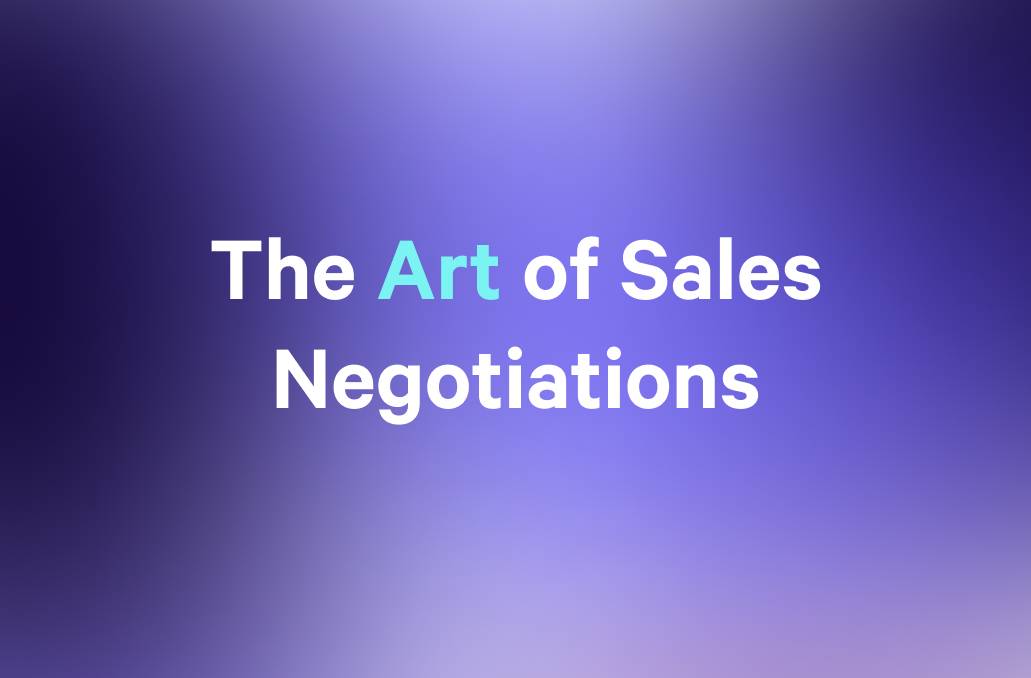Customer trust takes time to build, seconds to break, and forever to repair.
But you know what else is interesting about customer trust?
A prospective customer begins forming an opinion about your brand during the purchasing process. How you engage with prospects, your responsiveness, and the brand image you create during the “courtship” period— all set the tone of what it will be like “when the honeymoon is over,” or the experience that a prospect can expect as a paying customer.
But trusting brands differs from before, especially after the pandemic. The Adobe 2022 Trust Report found that 75% of executives say that since the pandemic began, they have had more difficulty building and maintaining customer trust.
So, how can brands build customer trust? In this detailed guide, we’ll explore the various facets of customer relationship management and how your SaaS business can build trust and create an army of loyal customers.
What is customer trust?
Customer trust is the solid foundation of any good relationship between a company and its customers. It's the feeling you get when you believe a company will do what it says and look out for your best interests.
Think about a favorite local bakery you trust to make your favorite cake how you like it. You know they won't use strange ingredients, and they'll deliver your cake on time for your special occasions.
Customer trust leads to customer loyalty.
In the business world, it's similar. When customers trust your company, they believe that its products or services will work as advertised, that their personal information will be kept safe, and that the company will be there to help if anything goes wrong.
In the B2B SaaS scenario, trust involves ensuring data security and privacy and handling sensitive information correctly. Additionally, customer trust extends to the reliability and scalability of the software, as B2B clients require solutions that can adapt to their evolving needs and provide consistent, uninterrupted service.
Trust also hinges on the software’s customer support and communication, as responsive assistance and positive experience are crucial for resolving issues and adapting the software to meet unique business requirements.
Why does building customer trust matter?
Trust makes customers feel comfortable and confident in their relationship with your company. It affects purchasing decisions and customer retention, yet building customer trust is still an afterthought for many organizations.
Research shows us that it shouldn’t be. PwC’s 2023 Trust Survey found that trust creates value. The survey results highlighted the fact that 92% of business leaders agree that organizations are responsible for building trust as it helps improve their bottom line.
Many businesses also don’t realize that customer acquisition in today’s time largely hinges on trust. Christine Almany, an award-winning CMO, echoes the same sentiment about trust in an HBR article. She says:
“This is not the time for corporate platitudes. People are smarter than you think. If you attempt to fool them, they will find out — and the hit to your credibility will outweigh any short-term gains that you made.”
If your buyers can’t trust you, you’ll see an impact on your website visits, a decline in sales, and poor ratings on review sites, which are all unpardonable in today’s competitive landscape. On the other hand, positive customer feedback from satisfied customers amplifies consumer trust and lets the world know about your quality products and service.
Key Elements in Building Customer Trust
“If people like you, they’ll listen to you, but if they trust you, they’ll do business with you.”
Just like Zig Ziglar, the motivational speaker behind this quote, consumers, employees, and business executives overwhelmingly agree that trust in business is imperative, and the lack of it can erode brand value and impact financial performance.
Furthermore, it is hard to regain the customer's trust once lost, according to PwC's 2023 Trust Survey.
So, what can brands do to ensure when building trust? In a nutshell, it boils down to transparency, communication, and consistency.
Transparency: The foundation of trust
In a 2022 survey of global consumers who made online purchases within the past six months, 60 percent expressed that they considered trustworthiness and transparency as the foremost brand characteristics, surpassing all other attributes. This figure marked a 5 percent increase from the previous year, standing at 55 percent.
Source: Statista
Clearly, transparency is the bedrock of trust in B2B business. To gain your customer’s trust, your sales reps must be crystal clear about its pricing structure and any potential limitations or integration challenges. They need to be able to discuss your software's capabilities and limitations, even if it means it may not be a perfect fit for all of their prospect’s requirements.
Downplaying some limitations of your software and making it seem like a perfect fit for every prospect’s needs will impact how they perceive and recommend your brand. After a prospect signs and starts the onboarding process, they’ll quickly discover any limitations.
Their trust in your company diminishes at this point, and they start questioning your integrity. But if your reps can be honest with prospects throughout the sales cycle, they’ll appreciate your honesty even if they decide not to go with your solution.
Communication: A pathway to trust
When sales professionals maintain clear and open channels of communication with their clients, it builds a strong foundation of trust. Consider this scenario: You're a sales professional at a B2B SaaS company, and your client is a financial institution using your software for data analytics.
Regularly updating them about software enhancements, providing proactive troubleshooting, and addressing their concerns promptly demonstrate your commitment to their success. Conduct quarterly business reviews and regular check-ins. When they feel heard and supported, trust in your partnership deepens.
Conversely, doubts can creep in if communication is lacking or infrequent, eroding trust. Therefore, robust and transparent communication, tailored to your client's needs, is the secret sauce that solidifies trust in B2B SaaS relationships.
Consistency: The bedrock of trust
Maintaining consistent performance and service delivery is key to building lasting client trust.
If your product performs flawlessly during the initial trial period but experiences frequent glitches after a client commits to a longer subscription, trust is quickly eroded. However, if your software consistently delivers on its promises, meeting deadlines and exceeding customer expectations, your clients will come to rely on it and trust your company as a dependable partner. Consistency is not just about product performance but also how you communicate, respond to inquiries, and handle issues.
By consistently demonstrating reliability, you lay the foundation for trust to flourish, which is crucial in the competitive world.
Proven Strategies for building customer trust during the sales process
Customer trust is the belief that your solution will do as you say. When a prospect evaluates your software or service, they assess if your product is authentic and trustworthy. Are your sales claims true? Will this product deliver the anticipated ROI and solve their use case challenges?
At Qwilr, this is a primary reason we talk so much about your buyer experience: the experience you create during the sales process shapes a prospect’s perception of your brand. But there’s more to building customers. Let’s look at some strategies in detail below.
Make a strong first impression
The adage "You never get a second chance to make a first impression" is significant when building trust with potential customers.
Imagine a scenario where your sales reps walk into a crucial client meeting impeccably prepared, armed with a deep understanding of the prospect’s industry and business pain points. By demonstrating expertise and an earnest commitment to addressing the client's unique needs from the outset, they set the stage for a relationship built on trust.
This powerful first impression, coupled with a salesperson e who embodies the best sales traits, reassures clients that they are dealing with a knowledgeable partner who can offer valuable solutions. This trust becomes the bedrock upon which successful, long-term partnerships are forged, emphasizing the pivotal role of a strong initial impression in this arena.
Empower your prospects
Empowering prospects is a powerful strategy for cultivating customer trust in the dynamic world of B2B SaaS sales. Sales representatives who go the extra mile to equip their prospects with valuable resources and insights throughout the sales journey foster a sense of partnership and demonstrate their commitment to the prospect's success.
Sales enablement plays a pivotal role in this process by providing sales teams with the sales tools, knowledge, and collateral they need to educate and empower prospects effectively. This might include tailored product demos, whitepapers, case studies, or personalized consultations.
To truly excel in building trust, sales and marketing teams must work in tandem, ensuring that prospects receive the right resources at each stage of their engagement.
For instance, when a prospect expresses interest in a B2B SaaS solution, marketing can provide them with informative content. At the same time, sales can follow up with a deeper dive into how the solution explicitly addresses their pain points. This collaborative approach ensures prospects feel supported and well-informed throughout the sales process, ultimately fostering trust and increasing the likelihood of conversion, doubling down your loyal customer base.
Mitigate friction in your sales process
To maintain and strengthen customer trust, your business should be more accommodating than your competitors. One way your sales team can maximize how accommodating they can be is to mitigate friction in your sales process. This can be accomplished by offering interactive pricing models and the flexibility to select features tailored to a client's specific needs.
When sales reps provide prospects with the ability to customize their pricing and feature selection, they empower them to align the software solution precisely with their requirements.
This enhances transparency and minimizes the risk of overselling or overcomplicating the offering.
For example, if a B2B SaaS company specializes in project management software, sales reps can present prospects with a pricing page that allows them to adjust user licenses, storage capacity, or additional functionality add-ons as needed.
This interactive approach ensures that clients pay only for what they genuinely require, reducing the potential for post-sale dissatisfaction and disputes. Moreover, it promotes a sense of control, further nurturing trust and positive relationships throughout the various touchpoints in the customer journey.
This approach, coupled with excellent customer service and loyalty programs, can help new customers feel at ease and, in the long run, help you gain positive word of mouth, reduce churn, and ultimately increase your product’s lifetime value.
Reduce buyer anxiety through positive reviews
In B2B SaaS sales, alleviating buyer anxiety is a paramount concern. This is especially true when your software comes with a high ticket price, and your prospect needs a lot of licenses. Using social proof like customer reviews and testimonials can help alleviate anxiety for buyers and illustrate how helpful an investment in your software can be.
This approach not only fosters authenticity and transparency but also leverages the innate trust people place in the opinions of their peers.
According to a Wyzowl, 9 out of 10 people express greater trust in what a customer says about a business than in what the business says about itself.
Sales representatives can harness the credibility of these third-party endorsements by showcasing success stories from satisfied clients who have experienced tangible benefits from their SaaS solution.
If a B2B SaaS company specializes in marketing automation, sharing a testimonial from a client who achieved a substantial increase in conversion rates and revenue through their platform can significantly reduce the anxiety of potential buyers. These testimonials from real people serve as real-world evidence of the product's effectiveness and the company's commitment to delivering value, ultimately forging a more trustworthy and convincing sales process.
Provide personalized experiences
Trust is the cornerstone of lasting customer relationships, and one effective method to earn that trust is by offering personalized experiences to your target audience.
Establishing trust with customers hinges on consistently recognizing and respecting their needs throughout their journey with your product or service.
A revealing statistic from the Zendesk Customer Experience Trends Report underscores the importance of personalization: a whopping 76 percent of consumers expect it. Customers appreciate when brands leverage the information they have about them to enhance their experiences.
Personal recommendations can mean tailoring communication methods to their preferences or providing recommendations based on past interactions.
Personalization might involve customizing your software to fit a client's unique needs or proactively addressing their challenges with personalized support and insights gleaned from customer data. These gestures convey a sense of being truly understood and valued, enhance sales engagement, and ultimately strengthen trust and nurture long-lasting customer relationships in the competitive B2B SaaS and B2B enterprise saas sales landscape.
FAQs
What are three ways you can build trust with a new client?
To build trust with a new client, prioritize transparency, honest communication, and consistency about your product or service, openly addressing their questions and concerns. Additionally, consistently deliver on your promises, ensuring reliability and dependability in every interaction, which will help solidify their trust in your offerings and your company and enhance its brand reputation.
How do you build trust with unhappy customers?
To build trust with unhappy customers, actively listen to their concerns and empathize with their frustrations. By addressing their issues promptly, offering solutions, and ensuring follow-up to confirm customer satisfaction, you can gradually rebuild their trust in your product and your commitment to their success.
How do you establish customer trust quickly?
Sales teams can establish customer trust quickly by actively listening to the customer's needs, providing honest and transparent information, and demonstrating expertise in their product or service.
Some final thoughts on building trust with your customers...
Building customer trust is not just a goal but a vital foundation for any successful business. It requires consistent effort, transparency, and a genuine commitment to meeting customer needs.
Businesses can create lasting connections with their customers by actively listening, delivering on promises, providing exceptional customer service, and showing empathy.
If you’d like more information on improving your sales collateral to create a memorable first impression or add in buyer conveniences, we invite you to try out Qwilr's web proposal software by booking a Qwilr demo.
About the author

Marissa Taffer|Founder & President of M. Taffer Consulting
Marissa Taffer is the Founder & President of M. Taffer Consulting. She brings over 15 years of sales and marketing experience across various industries to a broad range of clients.


